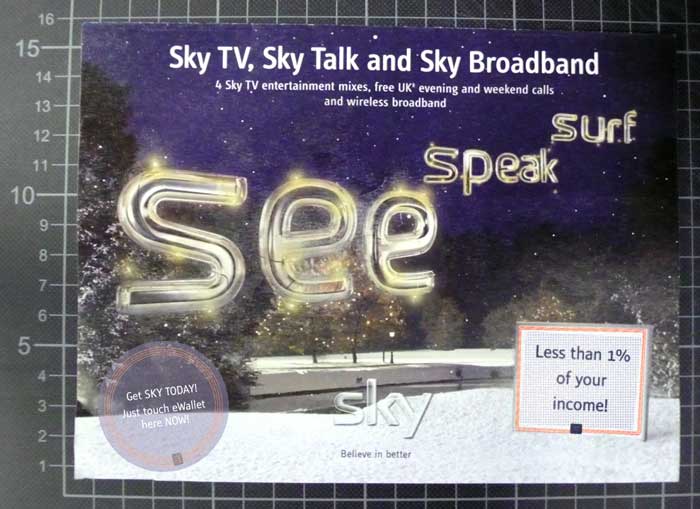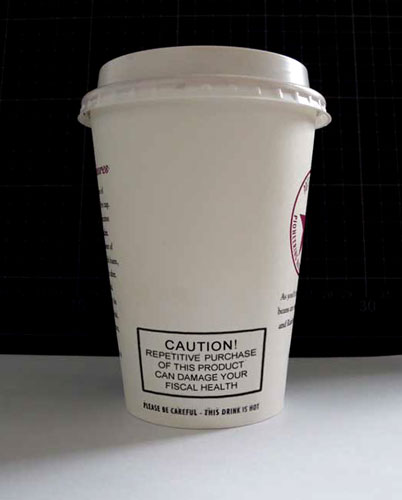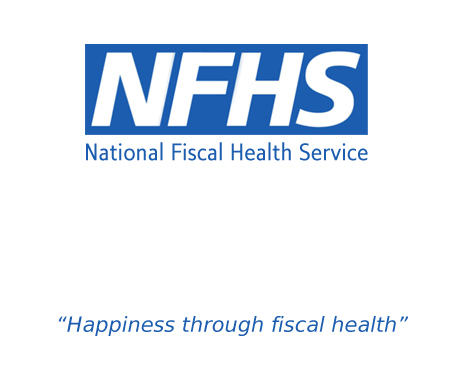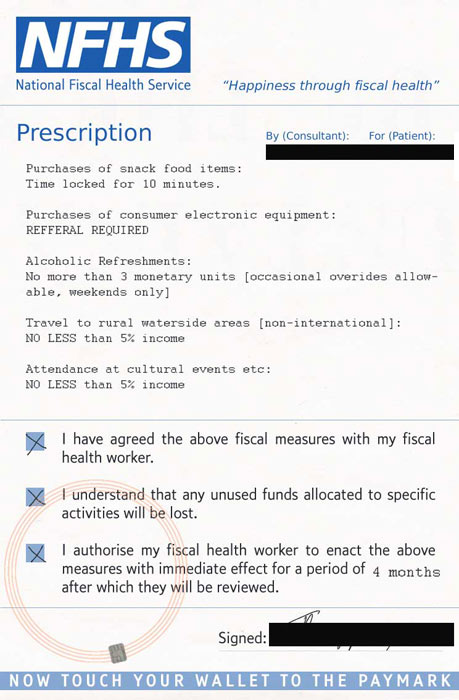(RCA industry project)
A service design project for Intel about the advent of E-Money…
Out of sight out of mind…
If we lose the physical tokens of money do we also lose our ‘feel’ for it? Handing over solid coins and elaborately decorated paper is replaced by a wave and an electronic beep – spending becomes less significant and we become more prone to impulse.
E-money = information.
In much the same way as supermarkets use loyalty cards to profile our spending with them, perhaps our e-wallets will record the details of our every purchase. And with information comes control – of others, and perhaps of ourselves.
You are what you buy.
Obesity, lung cancer from smoking, alcoholism, even depression. In a sense these illnesses are purchased. Most people know what kind of lifestyle will make them healthy and happy, but impulse gets in the way – another drink, a cigarette, that shiny new product you can’t afford. But if your wallet stops you from being able to pay for the things you know are bad for you…
E-money presents exciting opportunities for public health.


E-money, RFID and low power e-ink displays present new opportunities for active marketing materials. Touching your e-wallet to the leaflet displays a personalised price, and touching it again allows you to buy on impulse…

E-money makes spending invisible, and marketing techniques become ever more refined.
“The psychological arms race between consumers and marketers has been decisively won; the majority of consumers have lost control of their spending.”
The government naively introduces ‘Fiscal Health Warnings’.

The NFHS an offshoot of the UK’s National Health Service is founded. It’s remit: To treat diseases of affluence through prescribed spending.

A patient and their consultant agree on a variety of restrictions and prescriptions. The patients’ e-wallet is programmed to deny transactions for pre-agreed items, or to set aside money for specific things. So in a rational moment you decide what you’re able to do in the future…
The NFHS has helped combat physical diseases of affluence [e.g. obesity], addictions [e.g. smoking], and significantly has aided the fight against depression.
I love it. I would get a prescription right away. I’m somewhat surprised credit card companies haven’t implemented this already. I know it’s in their interest to have you spend money, but with people overspending, sinking into debt, and defaulting, one would think the companies would do something to curb the excessive spending. It’s also in their interests to keep people from becoming terrified of credit, as has happened to many people of this generation (myself included), after seeing what happened to our parents.
This is ingenious! But I think you’ve also missed another major impact to human health that e-commerce will afford; By data-mining and cross referencing e-money purchases with health records and genetic information every consumer becomes a member of a clinical trial…
“Look Doctor, every person that purchased a can of Old Yeller’s Creamed Corn between November 2015 and January 2016, that also owned a 1000W microwave made by Konohito Mfg., and has the genetic variant ABCA7, has developed Alzheimer’s between twelve and fifteen years later!”
This much accurate information about specific individuals will provide a giant leap forward in medical science.
Orwell!